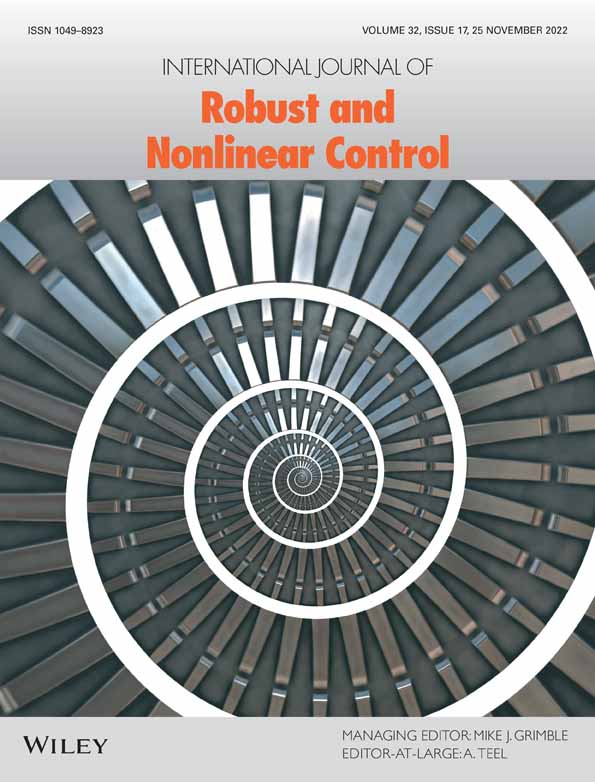Distributed attitude tracking control of multiple rigid bodies with global exponential stability on SO(3)
Funding information: National Natural Science Foundation of China, Grant/Award Numbers: 62103223; 61833009; 61873140; 61925303; U19B2029
Abstract
In this article, the leader-following attitude tracking problem is considered for a group of rigid bodies, and a distributed control algorithm is proposed with global exponential stability on the rotational orthogonal group SO(3). In particular, we consider that only a subset of followers has access to the leader's trajectory, and a semi-global exponential distributed observer is first proposed for each follower to estimate the leader's trajectory. Then, we introduce the shifted reference attitude of the leader to circumvent the topological obstruction on SO(3), and a combined distributed observer algorithm is developed by synthesizing different reference attitude trajectories. By constructing two Lyapunov functions, it is demonstrated that the leader's trajectory can be accurately estimated by the proposed distributed observer with exponential convergence. Next, an observer-based attitude tracking control algorithm is synthesized, which is continuous in time but is discontinuous with respect to initial conditions. It is shown that the trajectory of the leader can be tracked by all followers with global exponential stability on SO(3). Finally, numerical simulation examples are provided to illustrate the effectiveness of the proposed control algorithms.
CONFLICT OF INTEREST
The authors declare no potential conflict of interest.
Open Research
DATA AVAILABILITY STATEMENT
Data sharing is not applicable to this article as no datasets were generated or analyzed during the current study.




